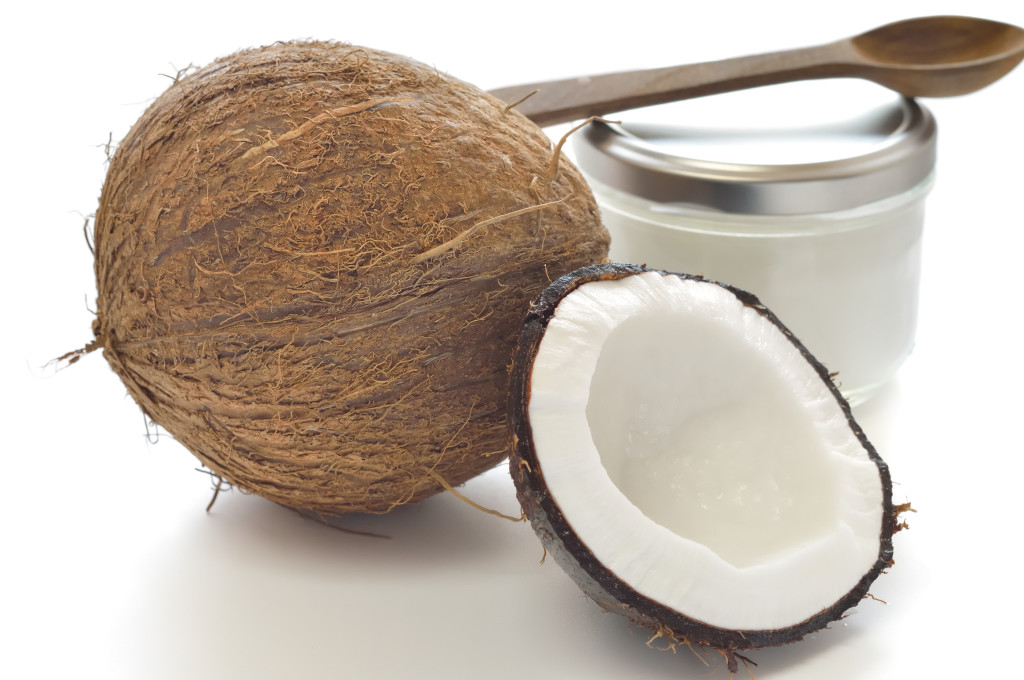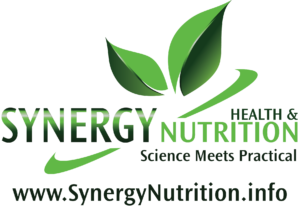 Wondering about the great nutrients in a cup of coconut milk?
Wondering about the great nutrients in a cup of coconut milk?
Do we need to dispel false data that says coconut is anything but amazing? Here’s the list and why I use it in everything from Coconut Milk Kefir to Coconut Milk Yogurt to Coconut Curry Seafood Stew.
Oh, almost forgot, Chocolate “Moose” cakes. You really have to try these.
Yum.
There is a world of good in a beautiful coconut…
240 mg of coconut milk (one cup serving) contains:
Calcium
 Approximately 40 mg of absorbable calcium (perhaps more important than the amount of calcium in a product is whether or not a body can absorb and use it. For example, of the 276 mg of calcium in a cup ofwhole cow’s milk, only 32 percent or 88 mg is absorbed.)
Approximately 40 mg of absorbable calcium (perhaps more important than the amount of calcium in a product is whether or not a body can absorb and use it. For example, of the 276 mg of calcium in a cup ofwhole cow’s milk, only 32 percent or 88 mg is absorbed.)
Magnesium
Vital for normal blood pressure, relaxing muscles, magnesium, like calcium, is also an important bone mineral. Studies have shown higher magnesium intakes to be associated with stronger bones. In fact, there needs to be available magnesium for calcium to be properly absorbed. Also, a magnesium rich diet can significantly decrease the risk of cardiovascular ailments such as heart attacks. Coconut milk is a rich source of magnesium with 1 cup of coconut milk providing 104 mg of magnesium compared with 24 mg in whole milk.
Potassium and Phosphorus
An excellent source of minerals, a cup of coconut milk provides 497 mg of potassium (compare that to 322 mg in whole milk or even 537 mg found in a banana—and the problem with bananas, their high glycemic index 18.3 gm of sugar and thyroid stress, is not a problem with coconut milk) and 240 mg of phosphorus (important for strong bones, energy level, digestion, nerve transmission, cell repair and many other vital body functions).
Other Minerals
 A cup of coconut milk provides about 1.3 mg of zinc, 7.5 mg of iron (compared with a paltry 0.07 mg in whole milk), 0.5 mg of copper (milk, 0.06 mg) and 1.7 mg of manganese (milk, 0.01 mg).
A cup of coconut milk provides about 1.3 mg of zinc, 7.5 mg of iron (compared with a paltry 0.07 mg in whole milk), 0.5 mg of copper (milk, 0.06 mg) and 1.7 mg of manganese (milk, 0.01 mg).
Vitamins
On a positive side, a cup of coconut milk contains 2.3 mg vitamin C (milk, none) and 0.4 mg natural vitamin E. It provides a good range of other B vitamins, including 30 mcg of folate (milk has a spectrum of B vitamins as well), but unlike cow milk, coconut lacks vitamin B2 and B12. Coconut milk is also devoid of vitamin A and vitamin D found at higher levels even in unfortified milk.
Carbohydrates
A cup of coconut milk contains only 6.4 g of carbohydrates compared with 11.7 g in whole milk.
Sugar
Although naturally sweet, sugar content is extremely low; just 8 g in a cup of coconut milk compared with 12 g in whole milk.
Fats—the best news for coconut milk
“Experts” unfortunately condemned the use of coconut milk a few decades ago due to its high-fat content; a 43 g per cup drawback if you are following one of the current fads to remove saturated fat from one’s diet. New data is showing that saturated fats are harmless and in fact may be beneficial. Many massive studies that include hundreds of thousands of people prove that the whole “artery-clogging” idea was a myth (2).
The early and heavily promoted fat misinformation is based on opinionated interpretation of (in some cases faulty) science (wow, that *is* a strong statement). Consider that heavily marketed polyunsaturated seed oils actually correlate with heart and other issues—not saturated fats which may even offer protective advantages. Cardiovascular damage is easily produced in animals by feeding them linoleic acid—an inflammatory fat in rape-seed (canola) oil used in most “health foods”.
Importantly, in defense of animal fats such as those found in healthy dairy and meat, reports claiming health dangers are probably not from the fat itself but the toxic substances contained in fat that comes from cows given antibiotics, hormones and fed low quality grains. Polyunsaturated fats in corn and other seeds suppress the thyroid and thereby suppress metabolic rate. While this may be desirable for concentrated feed lot operations that want to quickly fatten cows, pigs and chickens, since the 1930s, it has been clearly established that suppression of the thyroid raises serum cholesterol (while increasing mortality from infections, cancer, and heart disease).
It isn’t the amount of fat, rather it is the type of fat and the other hormones (natural or otherwise) in that fat. When you eat commercial grain-fed meat—even from organic “grain-finished” cows, your body gets these same slow-the-metabolism, raise-unhealthy-cholesterol, put-on-weight signals and a bolus of inflammatory fats not found in truly pastured meats. But we blame *all* fat, aaahhh commercial interests.
Coconut milk contains a number of healthy fats that promote overall health and weight loss and are amazing healers of unhappy digestive tracts.
50 percent of coconut fat is the beneficial Lauric Acid
This is an important fatty acid found in coconut milk. Lauric acid has potent anti-viral and anti-bacterial properties, recent studies have considered coconut oil as a possible method of lowering viral levels in HIV-AIDS patients. The lauric acid may also be effective in fighting yeast, fungi, and other viruses such as measles, Herpes simplex, influenza and cytomegalovirus.
People who argue that high saturated fat content of coconut milk does not go well with the heart should not forget that coconut milk also helps lower cholesterol. Even though we’ve now found that cholesterol levels and heart disease are correlated not causative, an unhealthy cholesterol profile still suggests nutritional and inflammatory imbalances that are best corrected.
Coconut milk has special fats called Medium Chain Triglycerides (MCTs) – which are fatty acids of a medium length.
Most of the fatty acids in the diet are long-chain fatty acids, but the medium-chain fatty acids in coconut oil are metabolized differently.
They go straight to the liver from the digestive tract, where they are used as a quick source energy or turned into so-called ketone bodies, which can have therapeutic effects on brain disorders like epilepsy and Alzheimer’s.
Bottom Line: Coconut oil contains a lot of medium chain triglycerides, which are metabolized differently and can have therapeutic effects on several brain disorders, and help the body burn energy rather than store it as fat.
It is a fact that different foods affect our bodies and hormones in different ways. In this regard, a calorie is NOT a calorie.
The medium-chain triglycerides (MCTs) in coconut oil can increase energy expenditure compared to the same amount of calories from longer chain fats (5, 6). One study found that 15-30 grams of MCTs per day increased 24 hour energy expenditure by 5%, totalling about 120 calories per day (7).
MCT’s in coconut milk are important for brain health and function.
The most common cause of dementia worldwide, Alzheimer’s is becoming more prevalent. While there are a variety of theories, two big clues are:
- People who force their cholesterol low with statin and other medications have higher rates of memory loss and lowered brain function.
- High carb diets. In this study (8) of nearly 1000 people who started with normal cognitive function, 200 developed cognitive impairment or dementia and the biggest link was a getting most calories from a carbohydrate, starchy foods diet.
Our brains need a tremendous amount of fuel but are very picky eaters. Brain cells will use only glucose or a molecule called ketone bodies as energy sources. Although we’ve been taught only about glucose (can’t let it drop too low for brain function) a healthy brain will actually ride through that by burning ketone bodies (9). In one 2006 study, consumption of medium chain triglycerides (MCT) led to immediate improvement in brain function in patients with milder forms of Alzheimer’s (10). If you like studies, here’s a good overview of how diet affects brain health, emotional and cognitive function (11).
Parting thoughts: If there has been any nutrition lesson learned in the last few decades, it is that very little is really known and a lot has been taken for granted. We are just now beginning to do the research that will unearth how ancient wisdom and traditional home remedies produce health. Tendencies to hold “well everyone knows _____” tight to our bosoms are being shattered. As many of those ideas only served corporate interests, I’m happily waving good-bye. I hope you’ll join me.
P.S. Best to avoid the “light” or diluted variety; it contains less lauric acid. Also, please don’t buy coconut milk with additives or chemicals, which can negatively impact its nutritional value.
Nutrient values are from the USDA National Nutrient Database for Standard Reference.








This is a topic which is near to my heart…
Many thanks! Where are your contact details though?
Feel free to visit my weblog; click here
Hi, thank you and I am glad you enjoyed the coconut milk nutrition read. I did visit your weblog also. You can contact me at marie@ournutritionkitchen.com. Cheers!
Marie